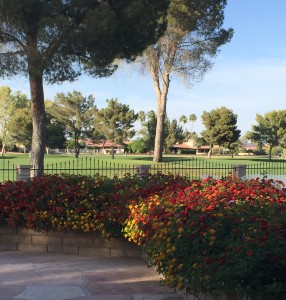 I walked into a local thrift store in a small mountain town and heard a female voice say, “Ya, he walked in and said, ‘I’m gonna divorce you!’ and I said ‘HALLELUJAH!’”
I walked into a local thrift store in a small mountain town and heard a female voice say, “Ya, he walked in and said, ‘I’m gonna divorce you!’ and I said ‘HALLELUJAH!’”
I chuckled to myself and continued my scavenger hunt. I never saw the woman, but I did figure out she was on the phone to someone she hadn’t talked to in a while. She had the phone on speaker, and I could hear the man’s voice too. She seemed to be hitting on him; reminiscing about high school, giggling, comparing the town they grew up in with where she was living now, giggling, and remembering the fun they used to have t-o-g-e-t-h-e-r. Then she said, “My husband and I would love for you to visit!”
I chuckled again. It was funny she didn’t care one bit who heard her total conversation. Nor did she hide her flirtatious comments.
Such is the fun of living in a small town. Everyone knows everyone, so there is no need to be discrete.
Small towns are a little like New York City. People dress to suit themselves, speak their language and don’t care what others think. The difference is, in a small town people care about each other. They care even if they don’t like them. In the city, nobody cares.
In a small town, a stranger is the topic of curiosity. In the city, everyone is a stranger unless they are famous, then they become the source of conversation. In a four hour flight, I can go from total anonymity in the city to a small town where people say, “Hi, how are you?”
I used to run on country roads, and the cows would turn their heads in unison to stare at me and Buster, the dog. In the city, I have to be hyper-vigilant not to get hit by people walking. Nobody sees me. The extremes are humorous.
I feel freer in the city where nobody knows me or cares. But it could grow lonely since I am so accustomed to connections and accountability.
I think I like my life. I get a strong, warm dose of small towns plus vacations in the city.
No wonder I laugh a lot.
Until the next time: Live while you live!
(I posted these comments for Harold in MI)
I have thought often about what I would do to re-engineer the failing large cities that I live near in Michigan. Having come from a rural and small town, I believe it is the culture, principles and values that need changed to make revisions to these cities. It seems the employment and business tax base has become minimum or expired.
I think the old neighborhoods have a common set of values and similar social economic. They were, in essence, a “small town,” in that everyone knew each other, knew who belonged, knew who was different, and knew their “business” just like all small towns. But it was that common set of principles, values, and culture that was the bond that held it together, controlled the kids, and approved or disapproved of specific behaviors.
In my small town of about 2000 people, we had one town cop, and few crime problems. Of course there were 1200 “Deputies” to monitor and provide information to our parents, both good and bad. A young person prefers more “freedom than most small towns provide.” But, as Jennifer said, they provided the environment for caring about the members of the neighborhood.
In a city, even back then, one could “disappear into the bigness” but not in small towns. In todays world, a neighborhood is not sufficiently strong to form a set of shared values, principles, and customs.
Businesses open, trying to provide employment opportunities, but it doesn’t directly change the neighborhoods in measurable ways.
John Wayne, in old time westerns, gave the best way to enhance change. He provided the leadership so citizens could gain courage and determination to take control themselves. Then there was change.
I struggle with the terms of “values, principles, culture.” I think they need to be further defined as behaviors, and actions, to make them tangible enough to see who wants to adopt what.
Flint Michigan is a good example of this change from money to no money because the businesses left and for years and years, changes were not made. They can replace lead pipes and get water quality back, but then what? We can put another new set of tires on our car that has 250,000 miles on it, but what do we really have?
We can’t easily do Chapter 11 with cities, so someone needs to figure out how to “fix them.”
I think small towns provide a lot of insight into what it takes to keep a viable society.
Someone should/would/could be studying the economic development and sustainability of small towns
Maybe they have always had it figured out.
Harold, I enjoyed your thoughts on values, culture and principles. Those are stronger in small neighborhoods because people are responsible for how their actions affect other people they care about. Individuals are connected to the whole. Thanks for your comments!